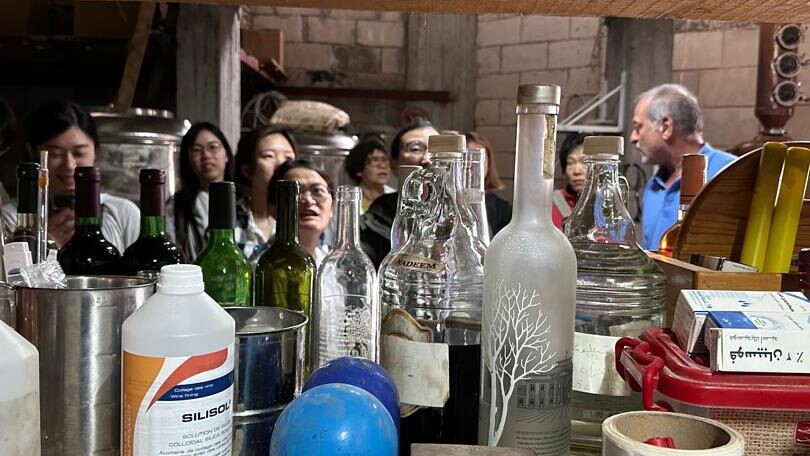While alcohol remains legal inside Syria, travelers are now discovering that it has become nearly impossible to carry any bottles across the country’s borders. Customs officers are strictly stopping passengers from bringing alcohol into Syria or taking it out, effectively creating an unofficial restriction on alcoholic products entering or leaving the country.
There has been no formal law or public announcement banning alcohol imports or exports. However, at all major border crossings — including the land entries from Lebanon and Jordan, and at Damascus International Airport — customs officers have started confiscating any bottles found in passengers’ bags. Even sealed bottles purchased in duty-free shops are not allowed through.
Frequent visitors report that this rule has been applied consistently in recent months, regardless of whether the alcohol was meant for personal use or as a gift. The same situation applies to outbound travelers, who are not permitted to take Syrian wine or arak abroad, even in small quantities.

Inside Syria, alcohol remains legal to buy and drink. Restaurants, hotels, and shops in Christian-majority areas such as Bab Touma and Bab Sharqi in the Old City of Damascus continue to serve local beer and wine. The country’s well-known Jarjour Winery near Homs still produces its signature wines, and Afamia Beer remains available in some venues. But customs restrictions now make these drinks exclusive to local consumption — tourists can enjoy them only while in Syria.
The new border enforcement has caused confusion among travelers and producers alike. There is no clear statement from officials explaining the policy, yet the practice has been widely observed and enforced. For now, visitors are advised not to bring alcohol into the country and not to attempt to take any bottles home.
In short, alcohol in Syria is still legal to drink, but when it comes to crossing the border, it has become unofficially forbidden.
